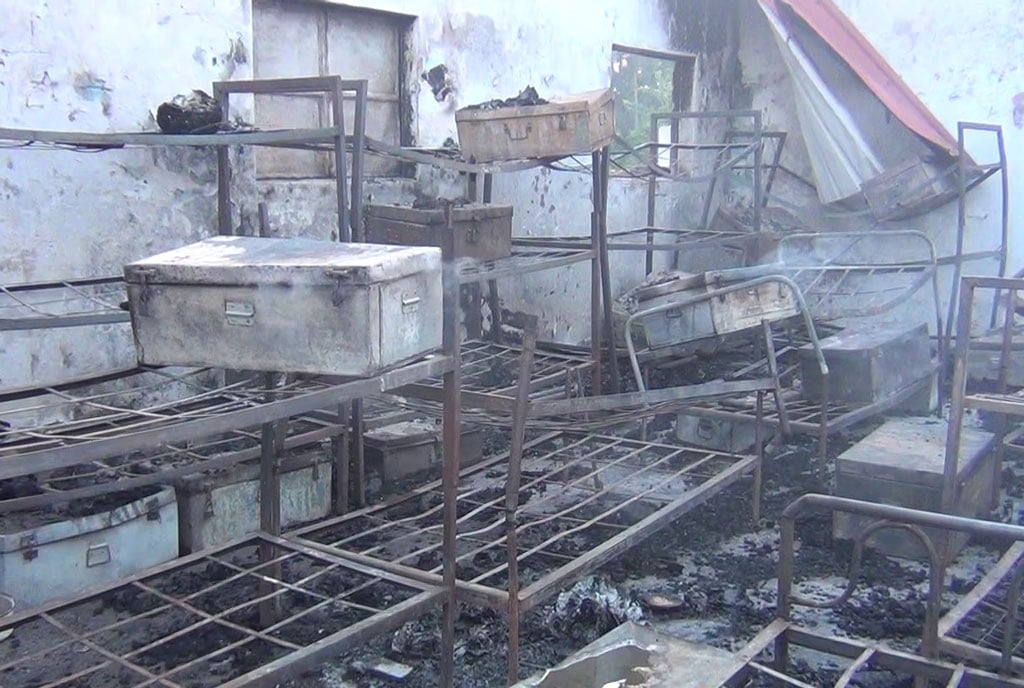Stop open defecation, urination to minimise spread of bilharzia

Simon Peter Kibira
What you need to know:
- Bilharzia dangers. At chronic stages, bilharzia can lead to retarded growth or stunting among children who remain untreated for years, anaemia, learning difficulties, weight loss. After years of infection, the parasite can damage the liver, intestines, lungs and the bladder. Organ enlargement is linked to the accumulation of fluids in the body resulting Bilharzia, which therefore kills!
The Daily Monitor of February 5, carried a story titled, ‘Ntungamo authorities raise concern over open defecation’. In the story, the authorities were concerned about sections of the town’s streets and drainage channels being littered with human faeces. We should note that open disposal of faeces and urine goes beyond Ntungamo. In many parts of Uganda, there is visible evidence of human excreta in several channels and street corners, which eventually wash down into water bodies and this has ramifications. Beyond the commonly known sanitary-related diseases, among the consequences of open defecation is the spread of the deadly Bilharzia (also scientifically known as Schistosomiasis), that is highly prevalent in Uganda.
In 2016, researchers from Makerere University’s School of Public Health conducted the first ever nationally representative Bilharzia Prevalence Survey in Uganda where a sample of the population was tested. Worrying results showed that two out of every 10 Ugandans aged two years and above had Bilharzia (22 per cent). The disease was most common among children aged under five years (two-four), with three out of every 10 testing positive. This means more than seven million Ugandans may be living with the deadly disease, yet many are not aware that they have the disease.
Prevalence was highest among people who lived in households that practiced open defecation or urination compared to those that had proper sanitation facilities. Continued open defecation and urination is the primary cause of the release of eggs into the water.
Even wealthy Ugandans who go to beaches and come in direct contact with water are exposed to the parasites since run-off contaminated water ends up in the water bodies. No one is safe from the deadly disease as long as they have contact with water bodies in Uganda where open defecation is practiced.
The biggest worry though is the children under five years that had the highest prevalence of this disease. Children this age are not included in mass treatment campaigns conducted in endemic areas by the Ministry of Health due to challenges with absence of easy to use, child size medicines for young children. These would struggle to take the big non-palatable praziquantel pill. The cheapest solution, therefore, is ensuring that we prevent the parasites from reaching the children and all of us by eliminating open disposal of human waste.
According to WHO, Bilharzia remains a huge public health concern. The transmission cycle starts when human urine and faeces containing parasite eggs are deposited in fresh water environments through open defecation and urination in or near water bodies. The hatched larvae infect the snail hosts that act as vectors where the parasites multiply, releasing another larval stage into water that infects other humans. Infection is transmitted when people get in contact with infested water bodies and swamps through bathing, routine agricultural practices like rice farming, domestic chores like fetching water, occupations like fishing, and recreational activities like swimming and wading in water at the beaches. The larvae evolve into male and female worms inside the human body and these coexist in the blood vessels for years. Female worms release thousands of eggs that are evacuated in human excreta.
What is also worrying is that many people are not aware about how this disease is transmitted. The second survey in 2017 showed that 30 per cent of the population had never even heard about Bilharzia. There were also many misconceptions about its transmission, including thoughts that it was through witchcraft. Bilharzia is a preventable disease, but also treatable. People should avoid contact with infested water, and where possible, ensure that they seek treatment when the Vector Control Division of the Ministry of Health is conducting mass treatment in endemic communities.
Most importantly, however, we should all practice good sanitation and hygiene, especially through having proper pit-latrines/toilets and using them well. Although many people have no symptoms in the early phase, the World Health Organisation indicates that as the body reacts to the worms’ eggs, the person gets persistent abdominal pain, bloody diarrhoea, general body weakness and fever.
At chronic stages, bilharzia can lead to retarded growth or stunting among children who remain untreated for years, anaemia, learning difficulties, weight loss. After years of infection, the parasite can damage the liver, intestines, lungs and the bladder. Organ enlargement is linked to the accumulation of fluids in the body resulting Bilharzia, therefore kills!
There are various efforts in place by the Vector Control Division at the Ministry of Health and partners to control Bilharzia, including treatment of infected people at the mass level. However, the prevention aspects need more than government efforts and partner support. It is very expensive to treat people at a population level. Besides, all medicines Uganda uses are donated, yet these cannot reach everyone that needs them. For example, by the year 2016, WHO estimated that only 36 per cent of the people requiring preventive treatment for bilharzia were reached globally. Also the medicine, praziquantel, is not readily available at health facilities in the country, and rapid diagnostic kits for bilharzia are not always readily available at health facilities.
This is why it is of paramount importance to take on the individual responsibility of ensuring massive behaviour change - to say no to open defecation and urination. Without people infesting the water, the snails will be harmless. Just like the authorities in Ntungamo are doing, all municipalities and town council authorities as well as places near water bodies, need to join in educating their communities to change behaviour. Only then shall we contain and eventually eliminate bilharzia. Together we can stop the spread of Bilharzia in Uganda!
Dr Kibira is a lecturer at Makerere University School of Public Health, and a co-principal investigator of the PMA-Schistosomiasis project in Uganda.




